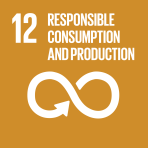Abstract
The COVID-19 crisis has resulted in significant output contractions, deteriorating social conditions and worsened debt sustainability. Some countries that had previously attained higher income status and deemed no longer to need grants and concessional finance in the form of Official Development Assistance (ODA) are once again in need of heightened international support. This includes countries that slid back to a lower income category as well as higher income vulnerable countries, such as numerous small island developing States (SIDS), who have found it difficult to respond and recover from the pandemic without support. Access to ODA, including through concessional finance windows at multilateral development banks (MDBs), is generally linked to gross national income (GNI) per capita. As developing countries attain higher income per capita status, access to grants and concessional windows declines. As a result, countries’ average cost of borrowing generally becomes more expensive, with shorter maturities, which can widen financing gaps in normal times. In times of crises, these gaps are magnified, underscoring countries’ need for support. Recognition that the need for support is often linked to factors that are not measured by income has led to MDBs, in particular, to include important exceptions in eligibility criteria, including incorporating vulnerability. However, it has often been ad hoc and not based on a full analysis of risk factors. This policy brief outlines the criteria to access ODA, why it needs to improve and suggests a way forward.
- 21 Jul 2022




